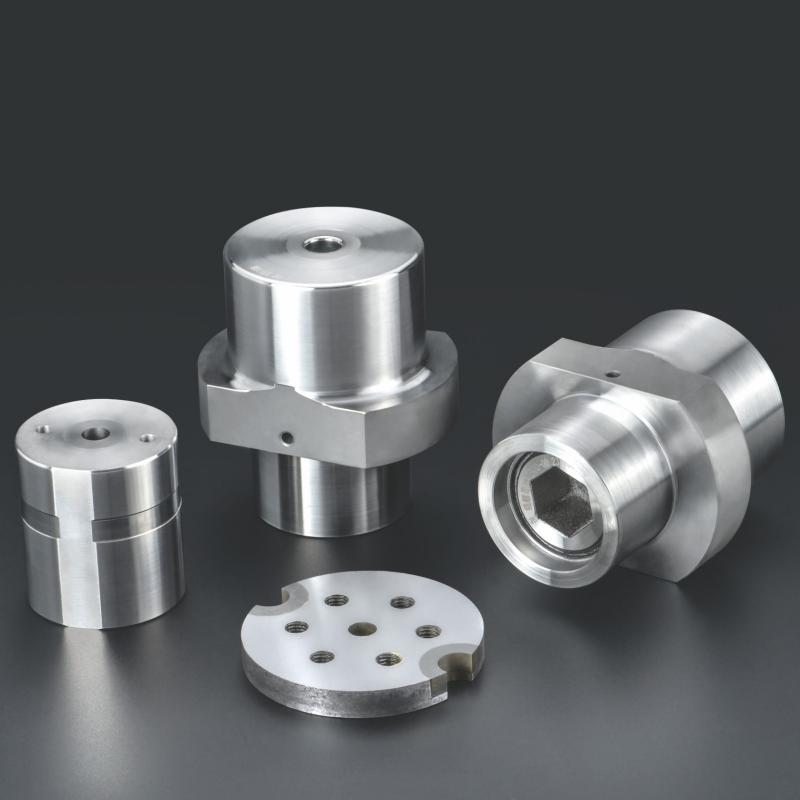Carbide Nut Dies play a crucial role in the fastener manufacturing industry by ensuring the efficient and precise production of high-quality nuts. These dies are made from Tungsten Carbide, a material known for its exceptional hardness, durability, and resistance to wear and heat. Compared to traditional steel dies, carbide nut dies offer numerous advantages that enhance production efficiency and product quality. Below, we explore the key benefits of using carbide nut dies in industrial applications.

1. Exceptional Durability
One of the primary advantages of carbide nut dies is their remarkable durability. Tungsten Carbide is significantly harder than tool steel, providing superior resistance to deformation and damage. This ensures a longer lifespan for the die, reducing the frequency of replacements and maintenance costs. Manufacturers can achieve consistent performance over extended production cycles, making carbide nut dies a cost-effective solution in the long run.
2. Superior Wear Resistance
Fastener production involves high-speed operations with continuous contact between the die and metal materials. Carbide nut dies excel in such demanding environments due to their outstanding wear resistance. Unlike steel dies that gradually wear down and lose precision, Carbide Dies maintain their integrity and dimensional accuracy for prolonged periods. This leads to higher productivity and minimal downtime for die replacement.
3. High Precision and Accuracy
The ability to produce nuts with tight tolerances and consistent dimensions is critical in manufacturing industries. Carbide nut dies are designed to provide superior precision, ensuring uniformity in thread profiles and nut shapes. This accuracy is essential for applications where exact specifications are required, such as automotive, aerospace, and machinery manufacturing. By maintaining precise dimensions, carbide nut dies help reduce defects and improve the quality of finished products.
4. Resistance to High Temperatures
During the nut-forming process, significant heat is generated due to friction between the die and the workpiece. Standard steel dies can experience thermal expansion and degradation under high temperatures, leading to reduced performance and accuracy. In contrast, carbide nut dies exhibit excellent heat resistance, allowing them to maintain stability and performance even in extreme conditions. This ensures consistent results and prolongs the die’s service life.
5. Enhanced Surface Finish of Nuts
The hardness and smoothness of carbide nut dies contribute to an improved surface finish on the produced nuts. A well-defined, polished die surface reduces friction during forming, leading to nuts with a high-quality finish. This is particularly important in industries where surface smoothness and precision are crucial for functionality, such as in automotive and aerospace applications.
6. Higher Production Efficiency
Since carbide nut dies last longer and require fewer replacements, manufacturers can achieve higher production efficiency. The extended lifespan of the die reduces downtime for die changes, leading to continuous production and increased output. Additionally, carbide nut dies allow for higher-speed operations without compromising quality, making them ideal for mass production environments.
7. Cost-Effectiveness in the Long Run
Although carbide nut dies have a higher initial cost compared to steel dies, their longevity and reduced maintenance requirements make them a cost-effective investment. The extended service life and fewer replacements result in lower long-term expenses, making carbide nut dies an economical choice for manufacturers aiming to optimize operational costs.
8. Compatibility with Various Materials
Carbide nut dies are versatile and suitable for forming nuts from various materials, including stainless steel, titanium, and other hard alloys. Their superior hardness allows them to handle tough materials without excessive wear, ensuring reliability across different manufacturing applications.
Carbide nut dies provide numerous advantages that make them indispensable in fastener manufacturing. Their durability, wear resistance, precision, and heat resistance contribute to superior performance and cost savings over time. By investing in high-quality carbide nut dies, manufacturers can achieve higher productivity, improved product quality, and greater efficiency in their operations. As technology advances, the continued development of carbide materials will further enhance the capabilities of these dies, solidifying their place as a preferred choice in the industry.











